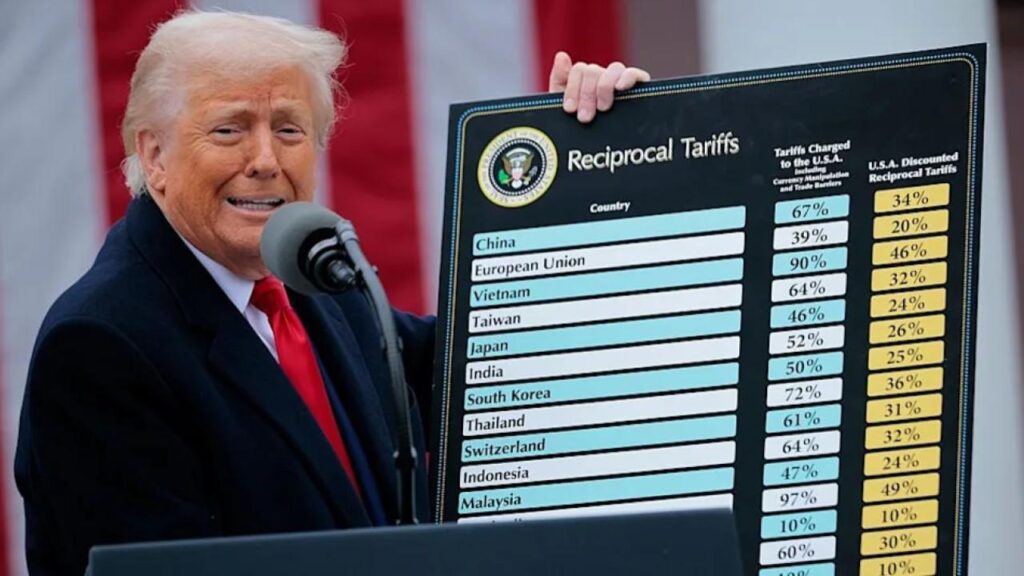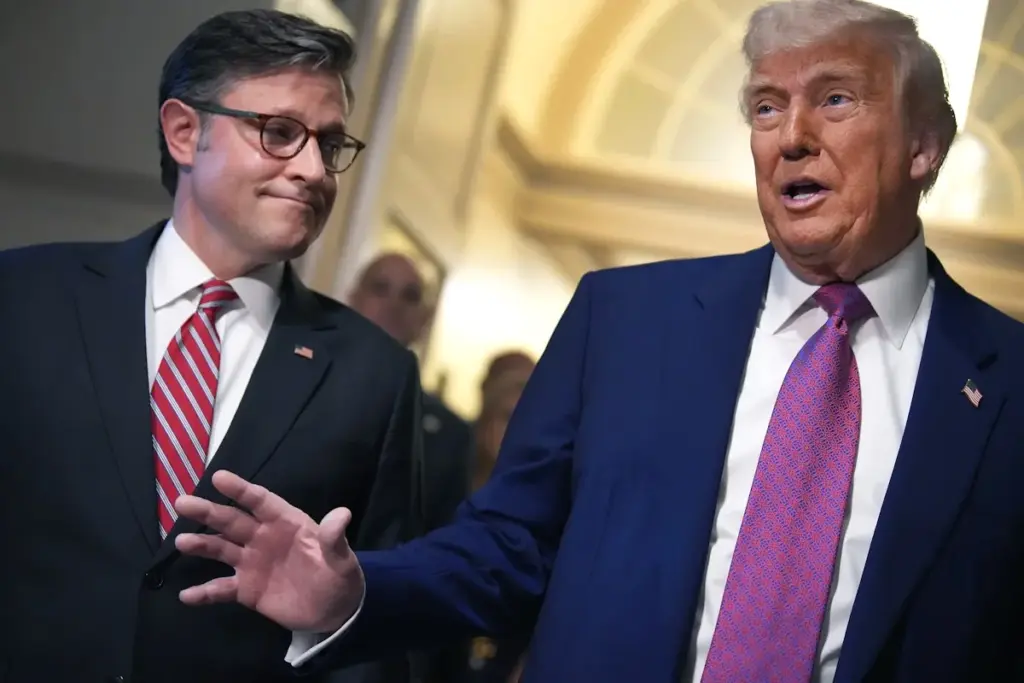Trump’s latest tariff plan has Americans—and even some of his own party—doing a double take. With a July 9 deadline fast approaching, the sweeping trade strategy is drawing fire from economists, small business owners, and top Republicans alike. Here’s what’s happening, why it matters, and how it could hit your wallet.

Trump’s Latest Tariff Plan Leaves Nation Reeling
| What’s Happening | Why It Matters |
|---|---|
| $82.3B burden on mid-size firms | Economic drag from added costs |
| Courts blocked tariffs in May | Legal showdown over presidential powers |
| GOP voices like Rand Paul & Phil Gramm pushing back | Intra-party tension on fiscal policy |
Trump’s aggressive trade maneuver is reshaping not just U.S. economic policy but also the Republican Party’s identity. With courts, Congress, and consumers all weighing in, the July 9 deadline could mark a turning point—or just another round in a long, bitter trade war.
What Are Trump’s Tariffs, Exactly?
Dubbed the “Liberation Day” tariffs, Trump’s plan initially placed a flat 10% duty on all imports, plus extra surcharges on goods from targeted countries. They took effect in April 2025, were paused for 90 days, and are now set to return on July 9—unless new trade agreements materialize. So far, the only deals inked involve the EU, UK, China, and Vietnam, and they’re narrow in scope.
Economic Fallout Already Felt
The tariffs are already taking a toll. According to an estimate cited in The Guardian, mid-sized U.S. businesses could face up to $82.3 billion in additional costs due to import surcharges. And consumers? They’re not spared.
Federal Reserve Chair Jerome Powell has warned that “tariff-driven inflation is real, and the burden is regressive.” In simple terms: working families will feel it most.
Having covered economic policy for over a decade, I’ve seen how these sweeping moves ripple across checkout lines. Tariffs might target China or Vietnam, but they end up hiking prices at your local store.
GOP Voices Break Ranks
You know it’s serious when even longtime Trump allies raise red flags. “Tariffs are taxes, plain and simple. Americans pay them, not foreigners,” tweeted Sen. Rand Paul in early July.
Former Sen. Phil Gramm, a Reagan-era economist and former Trump supporter, has warned the plan is a recipe for recession. Writing in the Houston Chronicle, Gramm criticized the policy as “politically clever, economically dangerous.”
Even Anthony Scaramucci, Trump’s onetime communications chief, didn’t mince words. “It’s like putting a brick on the gas pedal while heading toward a cliff,” he told Business Insider.

Legal Drama Heats Up
In May, a federal trade court blocked the tariffs, ruling they exceeded presidential authority under the National Emergency Act. Trump’s team is appealing, and the case could wind up at the Supreme Court.
Meanwhile, Congress is stepping in with the Trade Review Act—a bipartisan bill aiming to reassert legislative control over tariffs. But Trump has already threatened a veto.“We need guardrails,” said Rep. Don Bacon (R-NE), a centrist Republican. “Otherwise, one man can tank the entire economy.”
Business Backlash Builds
From manufacturing to retail, industries across the board are sounding alarms. “We can’t absorb another wave of these costs,” said Lauren Higgins, COO of a midwestern electronics distributor. “Our prices go up, our customers shop elsewhere.”
Trade groups representing automakers, tech importers, and agricultural suppliers have launched coordinated lobbying efforts against the renewed tariffs. Their message: let trade policy help growth, not hinder it.
Political Chess Game
Some Republican lawmakers are privately relieved by the court ruling, according to The Daily Beast. It saves them from having to publicly oppose Trump—still a powerhouse with the base—while quietly rooting for an off-ramp. “This court ruling? It’s a lifeline,” said one unnamed GOP strategist. “They want fiscal conservatism without poking the Trump bear.”
What Happens on July 9?
If no further deals are signed, all paused tariffs snap back into effect. That means higher prices on imports from countries like Mexico, India, and Brazil. The White House maintains the pressure is necessary to “level the playing field,” but critics warn it’s a blunt-force instrument. If deals are reached—or courts block the reboot—expect Trump to pivot. Either way, the political firestorm will continue.






